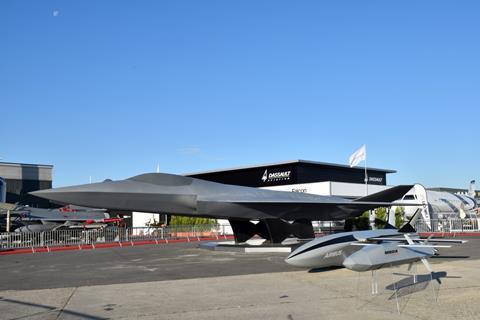Dassault chief executive Eric Trappier has stressed that no more countries can be admitted to the Future Combat Air System (FCAS) programme being co-developed by France, Germany and Spain, at least in the short term, for fear of delaying the effort.
Under the programme timeline, the partner nations – and their respective industrial champions Dassault, Airbus Defence & Space and Indra – are due to fly a demonstrator of the planned Next Generation Fighter aircraft by 2026, a schedule which is “pretty ambitious”, says Trappier. Dassault is leading the fighter development effort.

Although Spain was admitted into the programme earlier this year, Trappier does not want to see further countries join in the immediate future.
“If we change partners every six months we will not reach [service entry] in 2040,” he said during a half-year results briefing on 23 July.
Allowing Madrid to “jump in” was “complicated”, he says, but “feasible” at this relatively early stage.
”I don’t know if there will be new partners in the future so we should not exclude them, but to come up with the result and deliver a combat aircraft, remote carriers and an engine… for 2040 we must not waste any time.”
A properly designed consortium could allow more countries to join later, he says, “but the architecture has to be done now.”
He argues that a tri-national project can be considered a European one. “Does it have to be all 27 [EU members]? No, I don’t think so.”
Trappier also ruled out any merger, at least in the short term, of the FCAS programme with the UK-led Tempest effort, which also includes Italy and Sweden.
“We should never say never, but in 2020, 2021, 2022, there won’t be a merger with Tempest. If there were then we would have to reset and go back to zero.”
Dassault, meanwhile, has continued deliveries of its current production fighter, the Rafale, handing over a combined seven examples to export customers India and Qatar in the first half; a total of 13 will be shipped over the course of 2020.
Discussions continue with the French government about adding to its current 28-unit backlog of the fourth-generation type, with Trappier hoping the quantity may be larger than previously planned.
However, any future export deals are likely to be on hold due to the effects of the coronavirus pandemic, he says. “There will be some delay in them. 2020 will not be a record year in terms of export orders.”
Story updated with additional quotes in sixth and seventh paragraphs


























